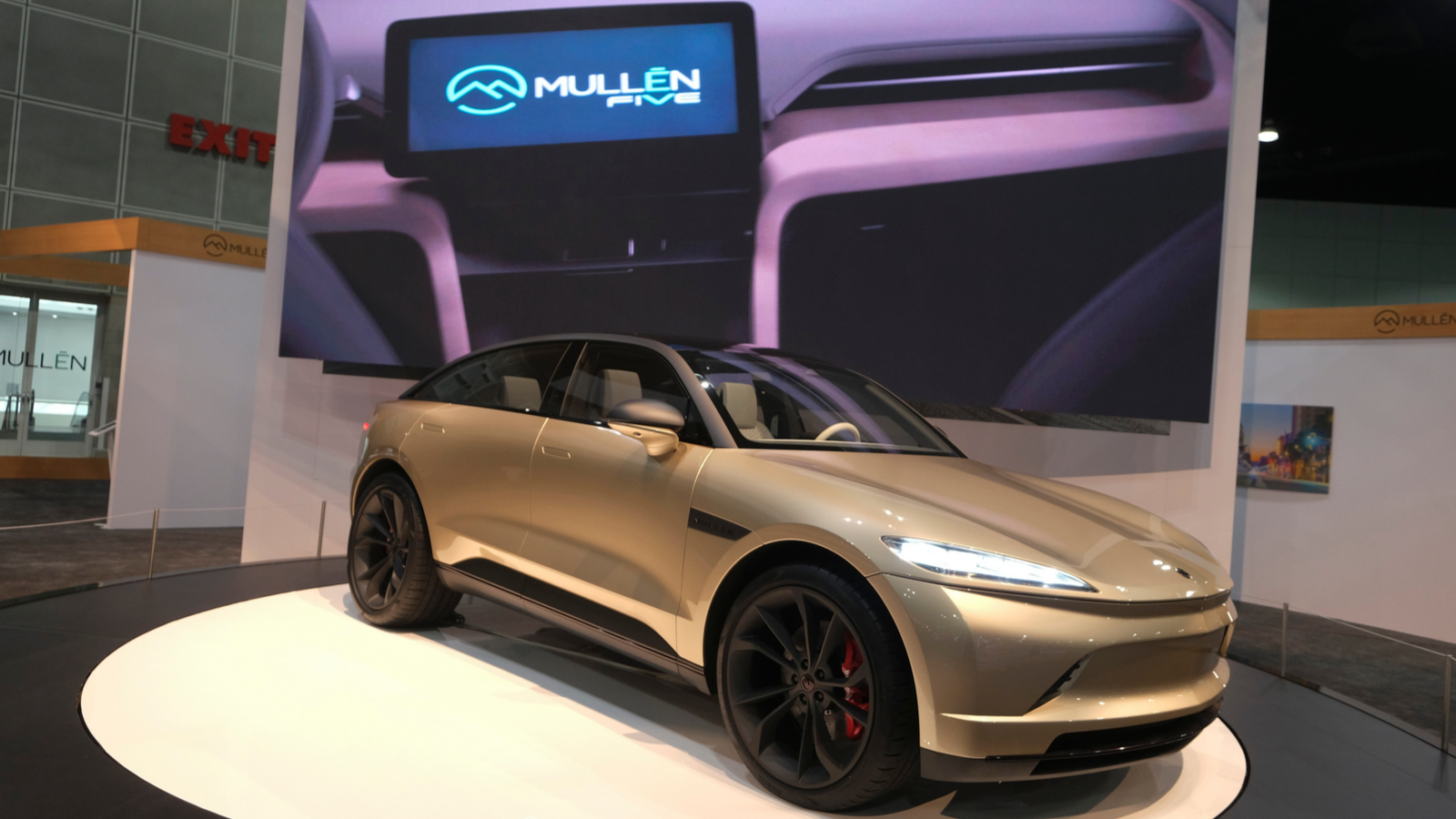Looking under the hood of Mullen Automotive (NASDAQ:MULN) does not make me, to say the least, very confident in MULN stock.
One of the company’s greatest achievements is supposed to be the electric-vehicle battery that it has produced. According to Mullen, its battery can deliver more than 600 miles of range. That number is, as the company maintains, very “impressive.”
But after examining the backgrounds of the two organizations that conducted tests of the company’s batteries and learning details about the partner with which it was developed, I’m very skeptical about the extent to which the test results can be relied upon by investors.
| Ticker | Company | Current Price |
| MULN | Mullen Automotive, Inc. | $1.1350 |
Mullen’s Most Recent Tester
The most recent evaluation was performed by an organization called Battery Innovation Center.
Based upon a page entitled “The BIC Team” on the company’s website, the top executive in charge of battery testing is a man named Jonathan Pace, who is its senior test and evaluation lab technician.”
According to the website, Pace is working towards finishing his associate’s degree in electronics technology at Vincennes University.” And the only work experience listed in his biography is seven years in the Army as an artillery cannon crewmember. Although I’m grateful for Pace’s service in the Army, operating and testing cannons does not necessarily seem like something that would prepare someone well for leading the testing of a high-tech EV battery. And Pace’s apparent lack of any sort of advanced degree is also somewhat off-putting.
Ben Wrightsman, BIC’s CEO, does have some technical experience and an electrical engineering degree from Purdue University, according to his LinkedIn profile,. But he has spent much of his professional career at either BIC or EnerDel, which develops energy storage systems, battery packs and lithium ion solutions for the industrial sector.
After looking through EnerDel’s website, it appears that, since 2020, the company has not announced deals with any major customers, aside from agreements with distributors. In 2020, it trumpeted a deal with a sizeable customer called Odyne, but the value of the agreement was not specified. In 2019, EnerDeal unveiled two deals, one with Workhorse (NASDAQ:WKHS), which has had more than its share of quality-control issues, and another with a sizeable company, Johnson & Towers. But again, no financial specifications for the latter agreement were divulged.
As for BIC itself, I could not find any mention of deals or customers on its website. It appeared that its only endeavors mentioned in the news section of its website were conferences hosted by the organization.
Mullen’s Previous Tester
In February, Mullen reported that a test of its battery had yielded impressive results. But according to Hindenburg, a research firm which was shorting MULN stock in April when its report was unveiled, the CEO of the company that actually conducted the test, was not impressed with Mullen’s battery.
Specifically, EV Grid CEO Tom Gage stated that the battery “was big, which created question marks in my mind too. And it was misshapen and really kind of an ugly thing.” Hindenburg reported. He added that he would not have used such superlative terms to describe the test results.
Moreover, Gage reportedly told Hindenburg that “EV Grid more or less ceased operations by June or July of 2020 and for the first half of the year it was basically shut down and I was moving out storing stuff in a warehouse because I had this other job at Indi EV.” Gage believes that the test of Mullen’s battery was actually carried out in 2018 or 2019.
MULN Stock: The Battery’s Origins
Also worth noting is that, according to Hindenburg, Mullen’s battery was developed in collaboration with a Chinese company called Linghang Boao. The two companies signed a partnership agreement in November 2019, about a year after Linghang was launched.
Hindenburg reported that, as of April 2022, Linghang’s website cannot be accessed, and it currently “shares a cell phone number with at least 99 other companies and listed its address inside a high-rise building (not a factory),” Hindenburg reported. Mullen paid Linghang a grand total of $390,000, the research firm stated. Additionally, Mullen only spent $3 million on research and development last year.
In summary, Mullen’s battery was reportedly developed in partnership with a company that seems to have folded, while it was tested by two organizations that appear to lack major customers and possess unimpressive track records. Moreover, Mullen appears to spend very little money on R&D, making its claims about the battery more suspect.
Given these points, I urge investors to sell MULN stock.
On Penny Stocks and Low-Volume Stocks: With only the rarest exceptions, InvestorPlace does not publish commentary about companies that have a market cap of less than $100 million or trade less than 100,000 shares each day. That’s because these “penny stocks” are frequently the playground for scam artists and market manipulators. If we ever do publish commentary on a low-volume stock that may be affected by our commentary, we demand that InvestorPlace.com’s writers disclose this fact and warn readers of the risks.
Read More: Penny Stocks — How to Profit Without Getting Scammed
On the date of publication, Larry Ramer did not have (either directly or indirectly) any positions in the securities mentioned in this article. The opinions expressed in this article are those of the writer, subject to the InvestorPlace.com Publishing Guidelines.
